
The Bustling Heart of Bamenda: Commercial Avenue
Welcome to Commercial Avenue, the pulsating core of Bamenda, Cameroon. This vibrant neighbourhood is the perfect mix of urban hustle and traditional charm, attracting visitors with its lively markets, diverse eateries, and rich cultural experiences. As the city's main commercial hub, Commercial Avenue offers an authentic taste of local life, making it a must-visit destination for any traveler. Stroll down the avenue and immerse yourself in the energetic atmosphere. The streets are lined with an eclectic array of shops, from bustling local markets where vendors sell fresh produce, spices, and handcrafted goods, to modern boutiques and electronic stores. Be sure to visit the Bamenda Main Market, a labyrinth of stalls offering everything from traditional attire to artisanal crafts, perfect for picking up unique souvenirs. Food lovers will delight in the variety of dining options available. Savor delicious Cameroonian cuisine at local restaurants and street food stalls, where you can sample dishes like Ndolé, Achu soup, and roasted plantains. The area is also known for its vibrant nightlife, with numerous bars and clubs offering live music and dancing, providing a glimpse into the local culture and entertainment scene. Commercial Avenue is not just about shopping and dining; it's also a gateway to understanding the history and culture of Bamenda. Don't miss the opportunity to visit the nearby cultural centers and museums, where you can learn about the region's heritage and traditions. Whether you're exploring during the day or enjoying the lively nights, Commercial Avenue promises an unforgettable experience.
Local tips in Commercial Avenue
- Visit early in the morning to avoid the midday crowds and get the freshest produce at the markets.
- Try local street food for an authentic taste of Cameroonian cuisine; don't miss out on the grilled fish and plantains.
- Carry small currency denominations for easier transactions with market vendors.
- Wear comfortable shoes as you’ll be doing a lot of walking while exploring the area.
- Stay cautious of your belongings in crowded places to avoid pickpocketing.
The Bustling Heart of Bamenda: Commercial Avenue
Welcome to Commercial Avenue, the pulsating core of Bamenda, Cameroon. This vibrant neighbourhood is the perfect mix of urban hustle and traditional charm, attracting visitors with its lively markets, diverse eateries, and rich cultural experiences. As the city's main commercial hub, Commercial Avenue offers an authentic taste of local life, making it a must-visit destination for any traveler. Stroll down the avenue and immerse yourself in the energetic atmosphere. The streets are lined with an eclectic array of shops, from bustling local markets where vendors sell fresh produce, spices, and handcrafted goods, to modern boutiques and electronic stores. Be sure to visit the Bamenda Main Market, a labyrinth of stalls offering everything from traditional attire to artisanal crafts, perfect for picking up unique souvenirs. Food lovers will delight in the variety of dining options available. Savor delicious Cameroonian cuisine at local restaurants and street food stalls, where you can sample dishes like Ndolé, Achu soup, and roasted plantains. The area is also known for its vibrant nightlife, with numerous bars and clubs offering live music and dancing, providing a glimpse into the local culture and entertainment scene. Commercial Avenue is not just about shopping and dining; it's also a gateway to understanding the history and culture of Bamenda. Don't miss the opportunity to visit the nearby cultural centers and museums, where you can learn about the region's heritage and traditions. Whether you're exploring during the day or enjoying the lively nights, Commercial Avenue promises an unforgettable experience.
Iconic landmarks you can’t miss
Admiralty Serviced Apartments
Experience comfort and convenience at Admiralty Serviced Apartments in Bamenda, your ideal base for exploring Cameroon's Northwest Region.
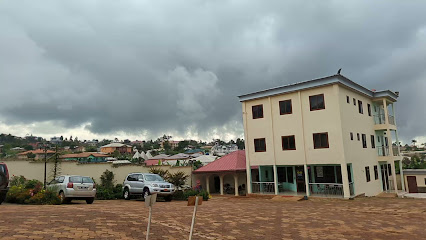
Bamenda Football Stadium
Experience the heart of Cameroonian football at Bamenda Stadium, where local passion and community spirit come alive!

Nkwen Fon's Palace
Explore Nkwen Fon's Palace in Bamenda: A vibrant cultural center showcasing Cameroon's rich heritage and traditions of the Nkwen people.
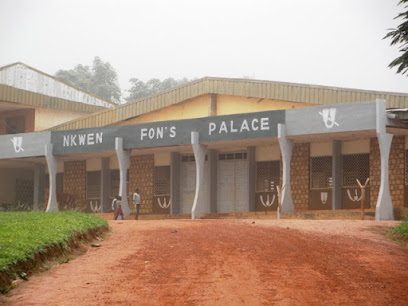
Mile 4 park
Escape to Mile 4 Park in Bamenda: A tranquil oasis where nature meets community, offering relaxation and a taste of local culture.
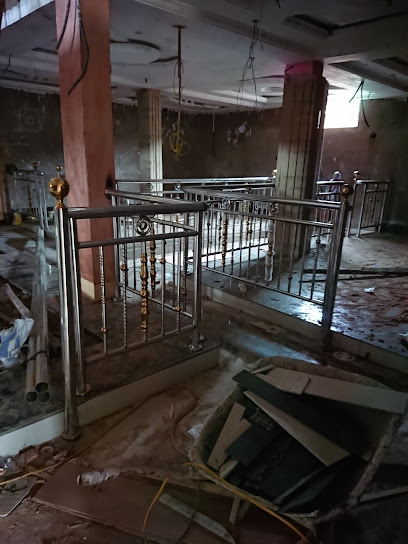
Mankon Museum
Discover the rich cultural heritage of the Mankon people at the Mankon Museum in Bamenda, Cameroon. A journey through art, history, and tradition.

PresCraft
Discover unique, handcrafted Cameroonian treasures at Prescraft in Bamenda, supporting local artisans and preserving cultural heritage.
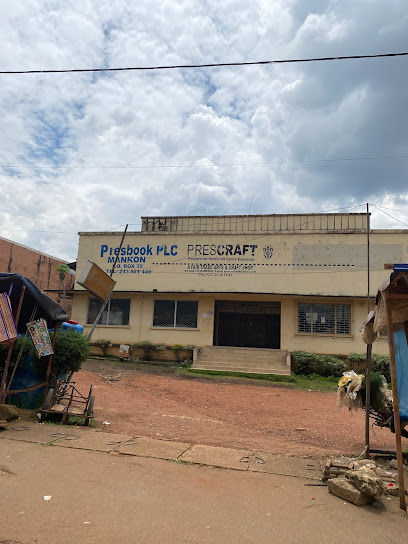
Bamenda Central Mosque
Discover the architectural beauty and cultural significance of the Bamenda Central Mosque, a serene landmark in Bamenda.

Universal Amusement PARK
Experience thrilling rides, fun games, and delicious food at Universal Amusement PARK, Bamenda's premier destination for family entertainment.
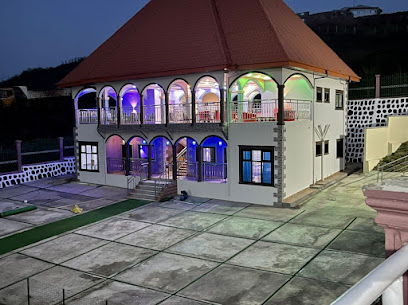
Commercial Avenue
Experience the vibrant heart of Bamenda: bustling markets, diverse cuisine, and rich cultural experiences await on Commercial Avenue.
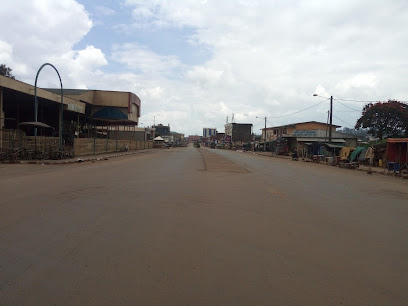
Noble Man Junction Bamenda
Experience the vibrant culture and community spirit at Noble Man Junction, a must-visit tourist attraction in Bamenda, Cameroon.

C-bend nature park
Escape to nature's tranquility at C-bend Nature Park in Bamenda, where lush landscapes and serene trails offer a refreshing retreat.

Unmissable attractions to see
Governor junction upstation BAMENDA
Experience the vibrant culture and scenic beauty of Governor Junction Upstation in Bamenda, a true gem for travelers seeking an authentic Cameroonian experience.
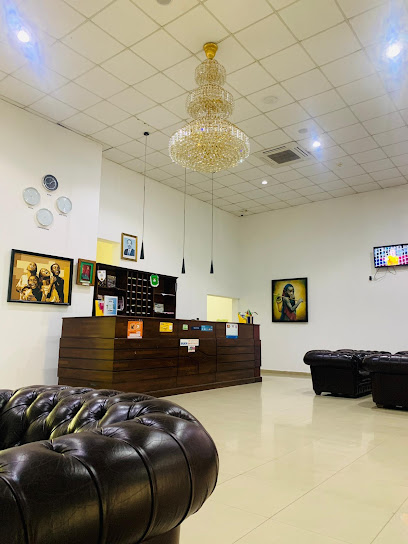
Sisia Waterfalls
Discover the breathtaking Sisia Waterfalls in Bamenda, a captivating attraction for nature lovers and adventurers seeking tranquility and stunning landscapes.
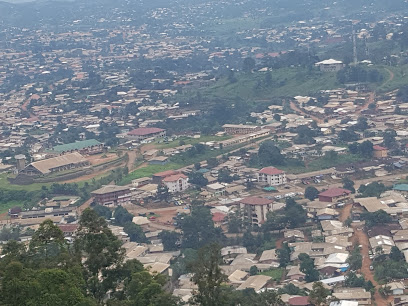
Espace vert d'amendoc
Explore the serene beauty of Espace vert d'amendoc in Bamenda, a must-visit green space that offers relaxation and a taste of local culture.
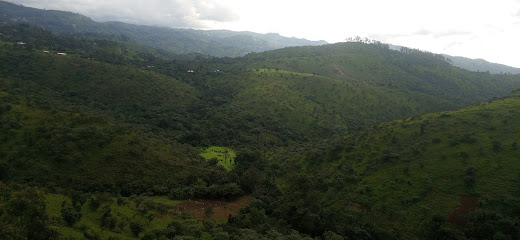
C-bend nature park
Discover the tranquility of C-bend Nature Park in Bamenda, a lush sanctuary perfect for relaxation and outdoor adventures amidst stunning natural beauty.

Abakwa Pikin’s Home
Discover the vibrant culture and rich traditions of Bamenda at Abakwa Pikin’s Home, a must-visit attraction for every traveler.

Home Farm @ Nah Nji
Discover sustainable agriculture and cultural immersion at Home Farm @ Nah Nji in Bamenda, Cameroon. A unique experience for nature lovers and eco-conscious travelers.
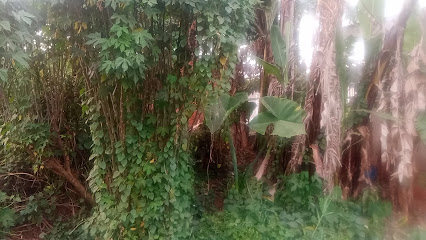
Essential places to dine
Dreamland Restaurant
Experience authentic Cameroonian cuisine at Dreamland Restaurant in Bamenda - a must-visit destination for food lovers.
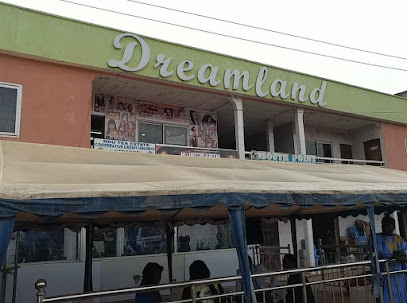
Blackrose Luxe Restaurant
Discover the essence of Bamenda's culinary scene at Blackrose Luxe Restaurant - where every meal is an experience.
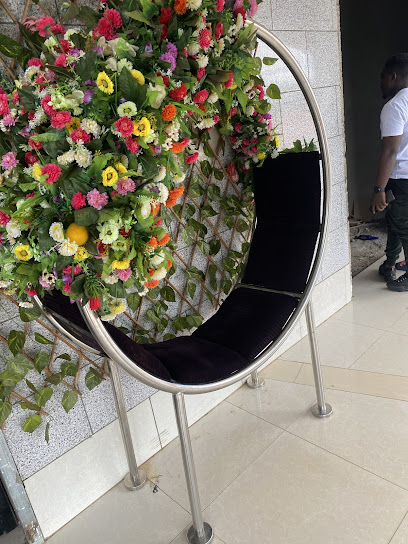
New Century Restaurant
Experience authentic Cameroonian cuisine at New Century Restaurant in Bamenda - where every dish tells a story.

ALIZANE RESTAURANT
Experience the essence of Cameroonian cuisine at Alizane Restaurant in Bamenda – where flavors come alive in every dish.
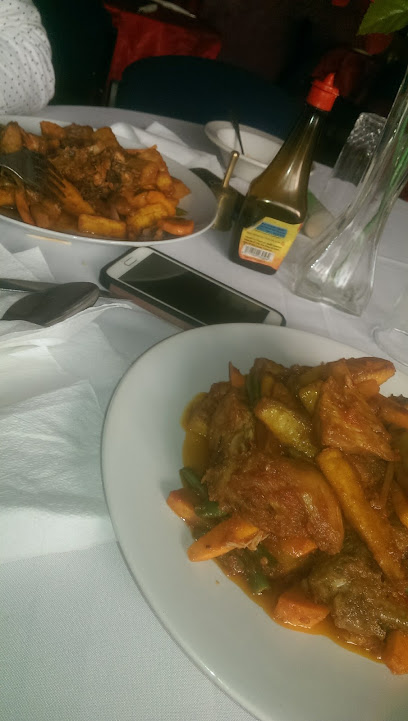
Princess Restaurant
Experience authentic Cameroonian cuisine at Princess Restaurant in Bamenda—where every dish tells a story.

Yumee Restaurant
Discover authentic Cameroonian cuisine at Yumee Restaurant in Bamenda, where every dish tells a story and every meal is a celebration.
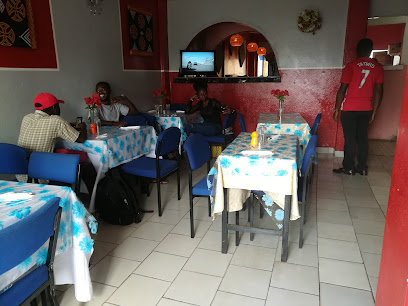
Base Lounge and Restaurant
Experience the vibrant flavors of Cameroon at Base Lounge and Restaurant in Bamenda - where culinary delight meets welcoming ambiance.
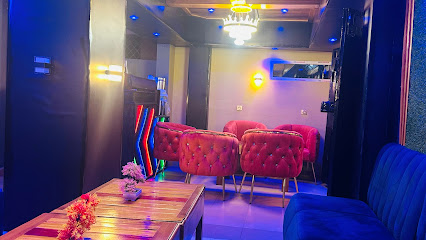
LOVE BEST RESTAURANT
Experience authentic Cameroonian flavors at LOVE BEST RESTAURANT in Bamenda - where every dish tells a story.
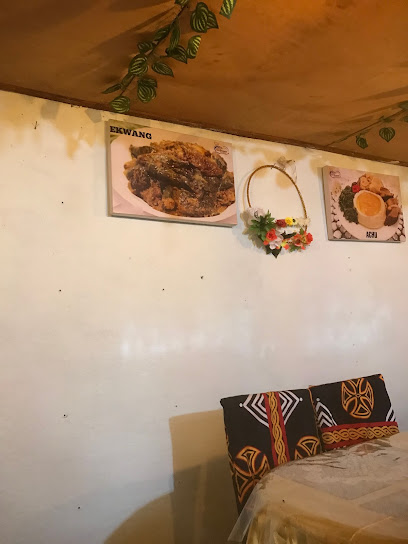
Atlanta city restaurants commercial avenue Bamenda
Experience authentic Cameroonian cuisine in Bamenda's vibrant restaurant scene on Commercial Avenue.
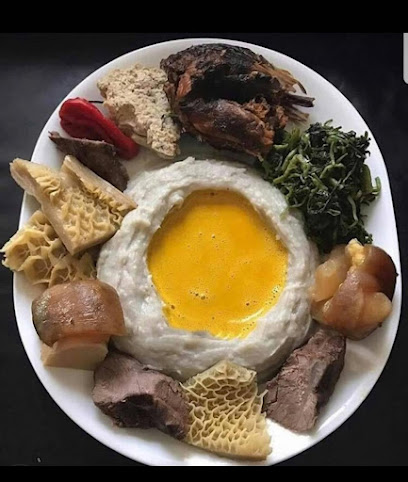
Executive Garden
Experience the rich flavors of Cameroon at Executive Garden in Bamenda, where culinary tradition meets modern elegance.

Markets, malls and hidden boutiques
Beatrice Babies Shopping center
Discover fashionable baby clothing and accessories at Beatrice Babies Shopping Center in Bamenda, perfect for stylish infants and toddlers.
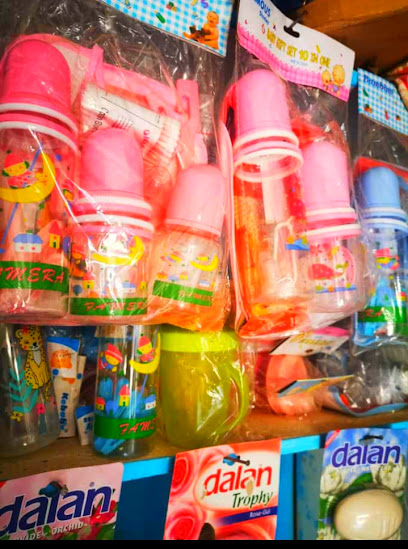
Shed 23, Main market. Bamenda
Discover Bamenda's vibrant fashion scene at Shed 23, where local designs meet contemporary styles in a lively market atmosphere.
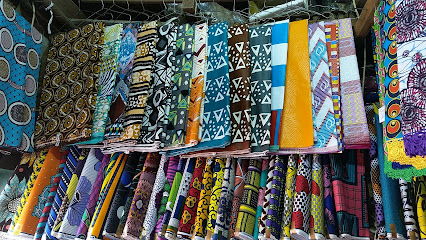
MINI shopping centre
Explore Bamenda's Mini Shopping Centre for a taste of local culture and delicious grocery finds that reflect the heart of Cameroon.

Workplace
Discover unique souvenirs and handcrafted treasures at Bamenda's vibrant gift shop, a celebration of Cameroonian culture and artistry.

Most Exclusive Generation
Explore the vibrant fashion scene at Most Exclusive Generation, Bamenda's premier clothing store offering unique local styles and souvenirs.

Clifford
Explore stylish and comfortable footwear at Clifford Shoe Store in Bamenda, where quality meets local fashion trends.

Megy’s closet
Discover unique fashion accessories that blend tradition and modern style at Megy’s Closet in Bamenda, a hidden gem for fashion lovers.

AWE & SONS ENTERPRISE
Explore the best electronics and local products at AWE & SONS ENTERPRISE, a premier shopping hub in Bamenda, Cameroon.
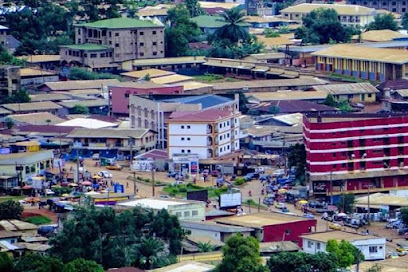
Rozy online shopping
Discover unique local goods and a vibrant shopping atmosphere at Rozy Online Shopping in Bamenda, where culture meets commerce.
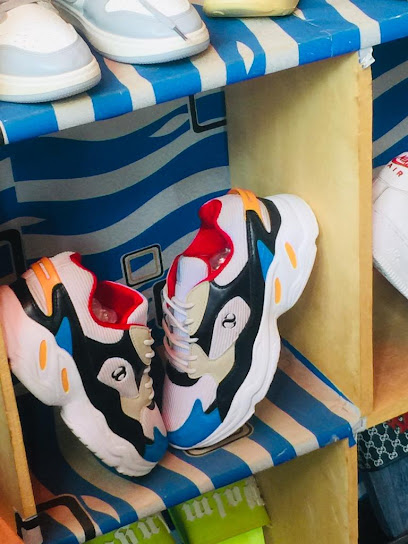
Friendship Business Center
Explore the vibrant Friendship Business Center in Bamenda for an authentic shopping experience and a taste of local culture.
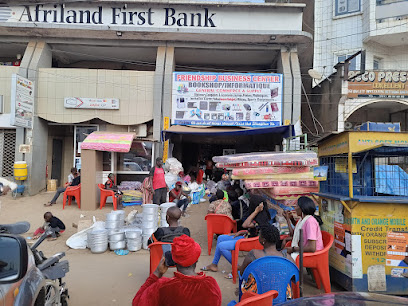
Essential bars & hidden hideouts
Candy Shop
Explore Bamenda's Candy Shop, a sweet paradise offering delightful treats and refreshing drinks in a charming atmosphere.
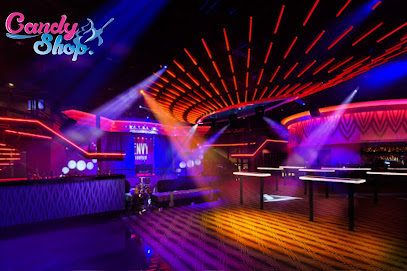
911 Snack Bar
Experience the vibrant local culture and flavors at 911 Snack Bar in Bamenda, the perfect gathering spot for tourists and locals alike.
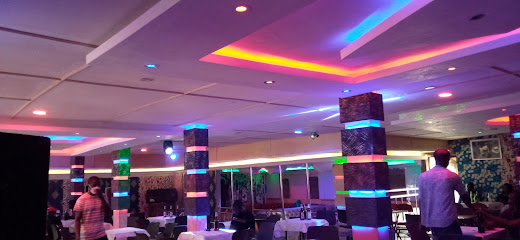
PLAZA PLUS
Discover the vibrant nightlife at PLAZA PLUS in Bamenda, where local culture, refreshing drinks, and live music come together for a memorable experience.
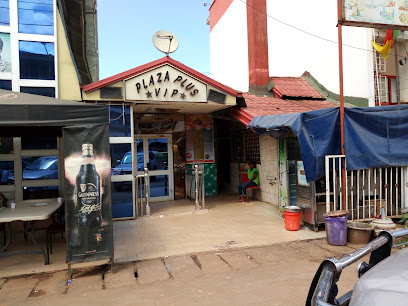
OUTBACK
Discover the heart of Bamenda's nightlife at OUTBACK, where drinks and local culture blend for an unforgettable experience.
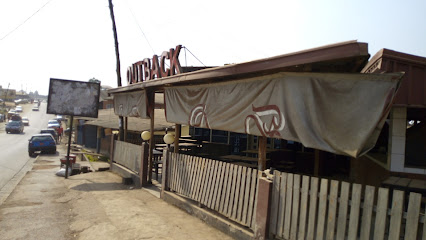
LOVE BEST RESTAURANT
Experience the rich flavors of Cameroon at Love Best Restaurant in Bamenda, where authentic cuisine meets warm hospitality.
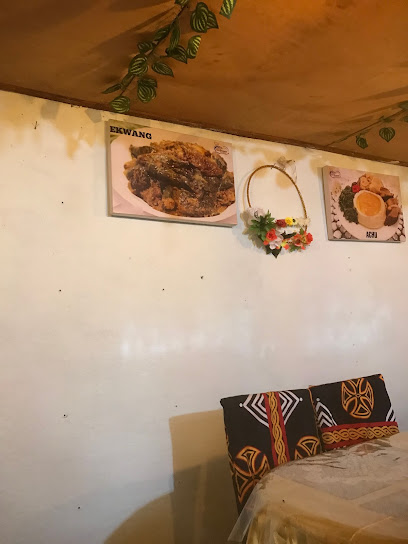
Jusue Bar
Experience the vibrant nightlife of Bamenda at Jusue Bar, where local flavors and a welcoming atmosphere come together for an unforgettable evening.

911 Wine Shop
Discover Bamenda's vibrant nightlife at 911 Wine Shop, a cozy bar with a diverse selection of wines perfect for any occasion.
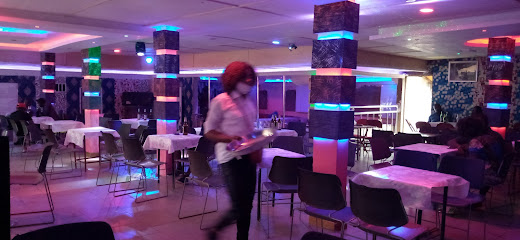
Na Wetti PRIVATE
Experience the vibrant nightlife of Bamenda at Na Wetti PRIVATE, a bar that offers a blend of local and international beverages in a friendly atmosphere.
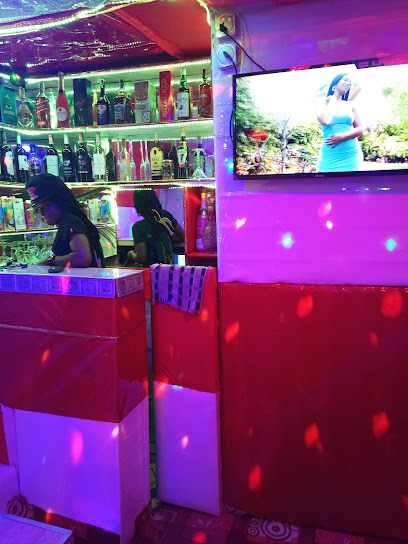
SAMBA VIP
Discover the lively nightlife at SAMBA VIP, a top bar in Bamenda offering local drinks, music, and a vibrant atmosphere, perfect for tourists.

Oliver bar
Discover the vibrant nightlife of Bamenda at Oliver Bar, where local culture meets a lively atmosphere and refreshing beverages.

Local Phrases
-
- HelloJambo
[jahm-boh] - GoodbyeAdieu
[ah-dyuh] - YesOui
[wee] - NoNon
[nohn] - Please/You're welcomeS'il vous plaît
[seel voo pleh] - Thank youMerci
[mehr-see] - Excuse me/SorryPardon
[pahr-dohn] - How are you?Comment ça va?
[koh-mohn sah vah] - Fine. And you?Bien. Et toi?
[byen. ay twah] - Do you speak English?Parlez-vous anglais?
[pahr-leh voo ahn-glay] - I don't understandJe ne comprends pas
[zhuh nuh kohm-prahnd pah]
- HelloJambo
-
- I'd like to see the menu, pleaseJe voudrais voir le menu, s'il vous plaît
[zhuh voo-dreh vwahr luh meh-noo, seel voo pleh] - I don't eat meatJe ne mange pas de viande
[zhuh nuh mahnj pah duh vyand] - Cheers!Santé!
[sahn-tay] - I would like to pay, pleaseJe voudrais payer, s'il vous plaît
[zhuh voo-dreh peh-yeh, seel voo pleh]
- I'd like to see the menu, pleaseJe voudrais voir le menu, s'il vous plaît
-
- Help!Au secours!
[oh seh-koor] - Go away!Allez-vous en!
[ah-lay voo ahn] - Call the Police!Appelez la police!
[ah-peh-leh lah poh-lees] - Call a doctor!Appelez un médecin!
[ah-peh-leh uhn may-deh-sahn] - I'm lostJe suis perdu
[zhuh swee pehr-doo] - I'm illJe suis malade
[zhuh swee mah-lahd]
- Help!Au secours!
-
- I'd like to buy...Je voudrais acheter...
[zhuh voo-dreh ah-shuh-tay...] - I'm just lookingJe regarde juste
[zhuh ruh-gahrd joo-st] - How much is it?Combien ça coûte?
[kohm-byen sah koot] - That's too expensiveC'est trop cher
[say troh shehr] - Can you lower the price?Pouvez-vous baisser le prix?
[poo-veh voo beh-say luh pree]
- I'd like to buy...Je voudrais acheter...
-
- What time is it?Quelle heure est-il?
[kehl uhr eh-teel] - It's one o'clockIl est une heure
[eel eh zewn uhr] - Half past (10)Dix heures et demie
[dees uhr eh deh-mee] - MorningMatin
[mah-tahn] - AfternoonAprès-midi
[ah-preh-mee-dee] - EveningSoir
[swahr] - YesterdayHier
[yehr] - TodayAujourd'hui
[oh-zhoor-dwee] - TomorrowDemain
[deh-mahn] - 1Un
[uhn] - 2Deux
[duh] - 3Trois
[twah] - 4Quatre
[kah-truh] - 5Cinq
[sank] - 6Six
[sees] - 7Sept
[sept] - 8Huit
[weet] - 9Neuf
[nuhf] - 10Dix
[dees]
- What time is it?Quelle heure est-il?
-
- Where's a/the...?Où est le/la...?
[oo eh luh/lah] - What's the address?Quelle est l'adresse?
[kehl eh lah-dress] - Can you show me (on the map)?Pouvez-vous me montrer (sur la carte)?
[poo-veh voo muh mohn-tray (soor lah kart)] - When's the next (bus)?Quand est le prochain (bus)?
[kahnd eh luh proh-shahn (boos)] - A ticket (to ....)Un billet (pour ....)
[uhn bee-yeh (poor)]
- Where's a/the...?Où est le/la...?
History of Commercial Avenue
-
Commercial Avenue in Bamenda, originally known as a trading hub, began to take shape during the German colonial period in the late 19th century. The Germans established trade routes and commercial activities that laid the groundwork for the development of local commerce. The avenue became a focal point for traders, facilitating the exchange of goods between local farmers and merchants.
-
Following World War I, the League of Nations mandated Cameroon to French and British control. Commercial Avenue was significantly influenced by British administrative practices, which brought about changes in governance and trade regulations. This shift also saw an increase in commercial activities as local businesses began to flourish under British colonial policies.
-
After Cameroon gained independence in 1960, Commercial Avenue evolved into a vibrant commercial center. The avenue became synonymous with local commerce, featuring a variety of shops, markets, and services that catered to the growing population. This period also saw the rise of local entrepreneurs who established businesses that reflected the cultural diversity of the region.
-
Commercial Avenue is not only a commercial hub but also a cultural melting pot where various ethnic groups converge. The avenue hosts traditional markets where local crafts, textiles, and food are sold, showcasing the rich cultural heritage of the Northwest Region. Festivals and cultural events often take place here, celebrating the diverse traditions of the people of Bamenda.
-
In recent years, Commercial Avenue has faced challenges such as urbanization pressures and socioeconomic changes. Despite these challenges, it remains a vital part of Bamenda, with ongoing efforts to revitalize the area through infrastructural improvements and community engagement. The avenue continues to play a critical role in the local economy while reflecting the dynamic culture of the region.
Commercial Avenue Essentials
-
Commercial Avenue is centrally located in Bamenda, making it accessible from various neighborhoods. From the Bamenda Main Market, you can take a local taxi (bendskin) or a motorcycle taxi (okada) directly to Commercial Avenue, which typically takes about 10-15 minutes. If coming from Mankon or Nkwen, the same transport options apply. For those arriving from the airport, a taxi ride will take approximately 30 minutes depending on traffic.
-
Commercial Avenue is a vibrant area best explored on foot, allowing visitors to soak in the local atmosphere. For longer distances, local taxis and motorcycle taxis are readily available. Public buses connect Commercial Avenue to other parts of Bamenda, but schedules can be irregular. Bicycles can be rented from local shops, providing a fun way to navigate the area.
-
While Commercial Avenue is relatively safe for tourists, standard precautions should be taken. Petty crime, such as pickpocketing, can occur, especially in crowded areas. It is advisable to avoid areas that are less populated at night, particularly around the outskirts of Commercial Avenue. Always keep belongings secure and remain vigilant in busy markets.
-
In case of an emergency, dial 112 for police assistance or visit the nearest hospital, which is located close to Commercial Avenue. It is recommended to have travel insurance that covers medical emergencies. For minor issues, local pharmacies are available, offering basic medications.
-
Fashion: Do wear comfortable clothing suitable for warm weather, but dress modestly, especially in areas near religious sites. Don't wear revealing or offensive clothing. Religion: Do respect local customs, and when visiting churches, dress appropriately. Public Transport: Do greet drivers and fellow passengers politely. Don’t engage in loud conversations. Greetings: Do greet locals with a handshake and a smile. Don't dismiss local customs of respect. Eating & Drinking: Do try local dishes and accept offers of food. Don’t waste food or refuse it without good reason.
-
To experience Commercial Avenue like a local, visit the bustling markets, where you can find fresh produce, traditional crafts, and unique souvenirs. Engage with vendors, as they often share stories about their goods. Attend local events or festivals if your visit coincides with them, as they provide a rich insight into the culture. Try local eateries for authentic Cameroonian cuisine, and don't hesitate to ask locals for recommendations.
Nearby Cities to Commercial Avenue
-
Things To Do in Mbouda
-
Things To Do in Dschang
-
Things To Do in Bafoussam
-
Things To Do in Foumban
-
Things To Do in Mamfe
-
Things To Do in Nkongsamba
-
Things To Do in Bafia
-
Things To Do in Douala
-
Things To Do in Buea
-
Things To Do in Tiko
-
Things To Do in Calabar
-
Things To Do in Limbe
-
Things To Do in Edea
-
Things To Do in Uyo
-
Things To Do in Yaoundé







